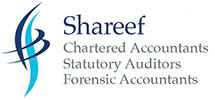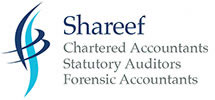CGT negligible value claim
If you own an asset that has become of negligible value, i.e. worthless, you can make a negligible value claim to HMRC which entitles you to treat the asset as if it were sold for nothing. The effect of this is to create a capital loss.
Losses on shares
You may have made an investment in the past that has performed badly. Indeed, you may have written it off in your own mind but, if you haven’t sold it, it may only be a paper loss that is not allowable for CGT purposes. However, there is an exception to the normal rule whereby you may be able to establish an allowable capital loss to offset against a capital gain even though there hasn’t been an actual disposal. If you can persuade HMRC that the shares are virtually worthless, e.g. the company has ceased trading and is insolvent, you can make a CGT Negligible Value Claim to offset this loss against your capital gains to reduce the amount of CGT you pay.
Negligible value list
HMRC keeps a list of quoted shares that are recognised as being of negligible value (see https://www.gov.uk/guidance/negligible-value-agreements-to-30-june-2014).
Checking negligible value
HMRC operates a post-transaction valuation service for capital gains, which is accessed by submitting Form CG34 (https://www.gov.uk/government/publications/sav-post-transaction-valuation-checks-for-capital-gains-cg34) to HMRC. You can also use this service to check if an asset has become of negligible value. Submit the Form CG34 at the same time as your negligible value claim.
Time limit
You can make a negligible value claim at any time after the shares have become worthless. Therefore, defer a claim until there are sufficient gains to avoid you wasting your annual exemption. The shares will be treated as though you sold them on the date you made the claim or up to two years before the tax year in which you make the claim (as long as they were worthless at the time).
Related Topics
-
Electronic VAT return
-
Government announces significant climbdown on IHT reforms
The introduction of a £1 million cap on 100% business and agricultural property relief from April 2026 has been criticised particularly heavily by the farming industry. The government has announced a significant watering down of the measure. What’s happening?
-
Corporation tax due




 This website uses both its own and third-party cookies to analyze our services and navigation on our website in order to improve its contents (analytical purposes: measure visits and sources of web traffic). The legal basis is the consent of the user, except in the case of basic cookies, which are essential to navigate this website.
This website uses both its own and third-party cookies to analyze our services and navigation on our website in order to improve its contents (analytical purposes: measure visits and sources of web traffic). The legal basis is the consent of the user, except in the case of basic cookies, which are essential to navigate this website.